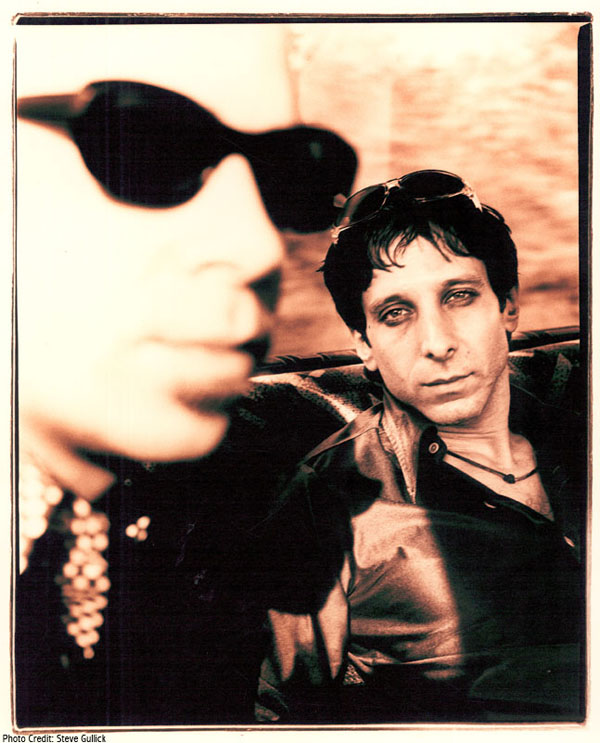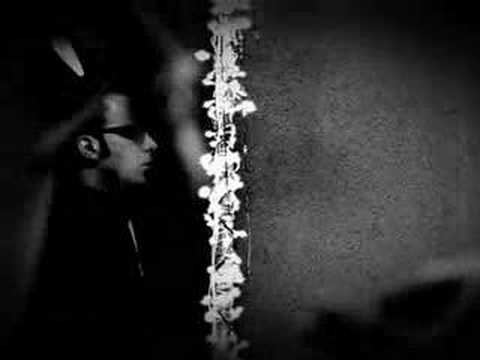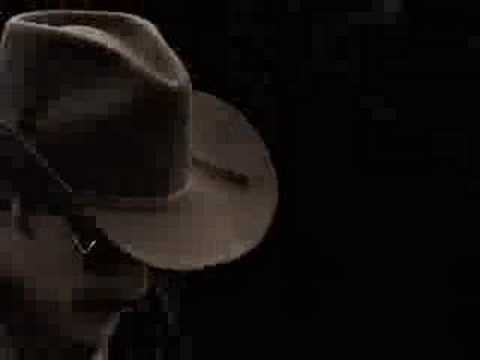Today, just about two hours ago is the first time I’ve heard ‘The Happy End’ in about ten years. It’s always been swimming around in the fish bowl of the memory, but it’s another thing when I put the headphones on and listen to it again. It takes me back to those moments in my attic recording it. I celebrate that, the intricate, peculiar time travel as opposed to ‘this was a defining moment in one group’s history’.
After See You On The Other Side we went through a giant sea change in the way we viewed what was going on. With the group, it was the way we interacted with each other, but most of all the way we interacted with life, personally. In the period after See You On The Other Side and before Deserter’s Songs there was a total dissolve of self, and I think in part that is where the record began, in that dissolving of everything. When we began it we didn’t have a manager, a label or a lawyer, everything had completely ground to a halt. I don’t know exactly how it all began again, when the bubble began to go again, or what sparked it, but something did. I can remember it was down to just… darkness.
It wasn’t emptiness in terms of being devoid of anything, it was almost the opposite, the darkness wasn’t an empty bucket, it was something so full but it wasn’t clear to me, it wasn’t anything I’d recognised before in my life, so I couldn’t see it for what it was. In that moment I couldn’t recognise anything, I couldn’t even recognise myself.
Somewhere in 1996 or 1997, I can’t remember, nothing was happening, everything was at a complete standstill, we’d barely even began writing Deserter’s Songs. I was thinking ‘well, OK, I’ve got to go out there and pump gas for the rest of my life’. Then out of the blue I got a call from Tom and Ed from the Chemical Brothers, who said ‘would you like to play on a song?’, which was the ‘Private Psychedelic Reel’. I almost cried, because I couldn’t believe someone remembered me and the band to the point that they’d actually call up and say ‘we want to work with you’. They sent me the basic tracks, and I think they were hoping for me to do one or two things and then send it back. I probably recorded 47,000 tracks, I was so exuberant, I just couldn’t believe it. I remember it was a great sun through the clouds moment in a long period of darkness, it did warm me up from the chill. I thank them to this day.
Only in hindsight did the Catskill Mountains seem like a place of refuge for me. When you’re at one of the bottoms, and in this time after See You On The Other Side some of these bottoms involved alcohol, they involved substances, they involved nervous breakdown, all of these very clichéd things. But they’re clichéd for very good reasons – you have to go through them, you have to see through the illusion of them, but at the time when you’re at the bottom you’re not thinking ‘while I’m down here, now is the best time to start writing the masterpiece. If I keep getting more fucked up, the better the masterpiece will be.’ I don’t adhere to the argument that when you’re really fucked up, that’s when you’ll write your great tome. When you’re really fucked up, you’re so self-centred, involved in your own inner workings, your inner gears are so covered in sludge and violence they’re worn down.
It was only when I was coming back up from that that I realised it was a good place that I was in, but at the time I wasn’t thinking about mountains and creeks and nature, I was so absorbed in being at the bottom. My vision was so narrow.
We didn’t have a lot of communication after See You On The Other Side for a year, maybe two. I don’t know if it was all necessarily emotional silence, there was just a lot of looking inwardly. Even in the beginning of the recordings there wasn’t a lot said. We’d put down some little words, and melodies, two or three days in my attic, then it might be two or three weeks before we spoke again.
But at other points it was as if fireflies were sparking off across the lawn. And other times we would blink in unison, and feel ‘yes, alright, that was a good take’. But then it would crash and burn right after. I don’t think it was one person, it was people going through some real inner workings, but not communicating what was happening. Dave [Fridman] was a lot more stable as a person than any of the rest of us were at that point, he’d been raising a family and getting a studio together, and he was in a very stable emotional and mental plane at the time, and I think in its own way that was an anchoring point. I think that’s the only reason that it came out at all.
When we were two thirds through we got a deal on V2 records, a new label that had just come up. That was really the impetus to actually finish the thing in an album way. There was fairly little interest in people wanting to release a Mercury Rev record at that point. We had left Columbia, and See You On The Other Side had sold very little. It wasn’t enough to make anybody’s ears to perk up and for them to say ‘Oh I can’t wait for the next Mercury Rev record to hit the stores’. That wasn’t there, and that is the truth of it.
I remember handing it in, and there was no immediate response from the label. It was quiet. I don’t say that to put them down. When they pricked their ears up was when they started to send the record out to press people. Again I’m sure it wasn’t anyone’s priority the first day they came across it on the editor’s desk. But one by one the phone calls started coming in. Then it had this momentum, and Grasshopper and I started talking much more – ‘well I guess we better get a band together and learn how to play these songs, and some of the older songs too.’ It was re-establishing every relationship as a new band.
I wasn’t paying much attention to the success side, what was happening in the press or the sales that were to come, it was more an opportunity for me to re-establish a relationship with my best friend, and hopefully not fuck it up.
Initially when we took it out we took any opening slot we could get. And one of those was with the Jesus and Mary Chain, who were really on their very last legs. One of the brothers had just left the group, and they were having some really dark times. We were opening for them, and were just glad that we were playing to more than two people again. It was a slow, gradual process, and all these new experiences came around that I’d never seen before, with the popularity, the financial rewards, I hadn’t seen before and Grasshopper hadn’t seen, so there were a whole lot of new experiences to go through, new bottoms to go down to. It had the feeling of rebirth, of going down to the grave for quite a while and lying down there in the darkness and the quiet, and then someone pulls you up and shakes the dirt of you and says ‘no, you thought you were dead, but you’re not.’





